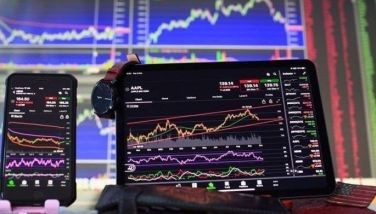Fitch, AMRO slash Philippine growth outlook
MANILA, Philippines — Global debt watcher Fitch Ratings and regional think tank ASEAN+3 Macroeconomic Research Office (AMRO) both shaved off their growth forecasts for the Philippines this year, citing the slow pace of recovery in the first semester.
Fitch Ratings lowered anew the projected gross domestic product growth for the Philippines to 4.4 percent instead of five percent this year while the Singapore-based AMRO cut its GDP growth forecast to 4.3 percent, a huge downgrade from its 6.4 percent outlook in June.
“A resurgence in daily COVID infections since late July and the Philippines’ low rate of vaccination pose a risk to our growth forecasts,” Fitch said.
“The economic impact of the COVID shock for the Philippines in 2020 was far worse than we had previously expected due to the local infection rate and the impact of lockdown measures on domestic activity,” it said.
Both forecasts, however, still fall within the government’s revised growth target of between four to five percent this year.
The debt watcher said the pandemic has significantly eroded the buffers from the low government debt-to-GDP ratio when the Philippines entered the COVID crisis.
Despite the impact of the global health pandemic, Fitch affirmed the Philippines’ BBB rating, a notch above minimum investment grade.
Although green shoots have emerged, BSP managing director Zeno Ronald Abenoja told participants in a virtual media lecture series that the country’s recovery remains fragile.
“Overall momentum of economic recovery remains tentative due to threats of new virus strains. Additional fiscal support and acceleration of vaccination program are critical in sustaining the recovery,” Abenoja said.
Meanwhile, AMRO significantly trimmed its economic growth outlook for the Philippines this year as it called on the country to expand fiscal policy to avoid long-term scarring effects.
AMRO chief economist Hoe Ee Khor said the Philippines has been more badly hit than some of the other economies in the region, and the latest wave of COVID infection in August contributed to the less optimistic outlook for the country.
“The Philippines, unlike many of the countries in the region, is a very much service-oriented economy and that’s the reason why it was hit harder,” Khor said.
The Philippines remains largely service-oriented, making the economy more susceptible to pandemic shocks.
The spread of the Delta variant in the last few months also dimmed prospects in the Philippines and the ASEAN+3, with AMRO slashing the region’s GDP growth forecast to 6.1 percent from 6.7 percent.
Significant GDP cuts were also noted in Cambodia, Indonesia, Laos, Myanmar, Thailand and Vietnam.
Further, AMRO urged the Philippines to expand its fiscal policy to support economic recovery especially as growth momentum is proving to be weaker than expected amid surges in COVID-19 cases that lead to mobility restrictions.
Based on its recommended policy direction, the Philippines is the only country in ASEAN+3 that needs expanded fiscal policy. Neighboring countries like Cambodia, Malaysia, Myanmar and Thailand are urged to maintain their policy.
Khor maintained that the Philippines still has policy space available to support the business community.
“During this recovery phase, we have encouraged authorities to use the policy space that they have to support and avoid the scarring of the economy and to allow businesses to bounce back faster,” he said.
As scarring effects from the pandemic will depend on the country’s strength of recovery, Khor noted that factors such as policy space and vaccination will be critical in the economic rebound.
AMRO emphasized that targeted policy measures should continue to support hard-hit sectors, minimize scarring effects that could lead to lasting inequalities and social inequity, and facilitate the transition to the new digital economy.
Existing policy measures are urged to be phased out in a gradual and well-communicated manner to avoid cliff effects.
In terms of monetary policy, AMRO does not see any urgency for the Bangko Sentral ng Pilipinas and other central banks to normalize policies just yet.
Khor advised countries in the region to maintain the monetary policy stand for as long as they can in order to support the recovery.
“Once the recovery is well entrenched, then we can talk about normalization of interest rates. For now, the only country that has done so is Korea but Korea is basically ahead of the curve in terms of recovery,” Khor said.
“But that’s not the situation for most of the countries in ASEAN,” he said.
- Latest
- Trending































